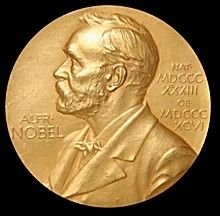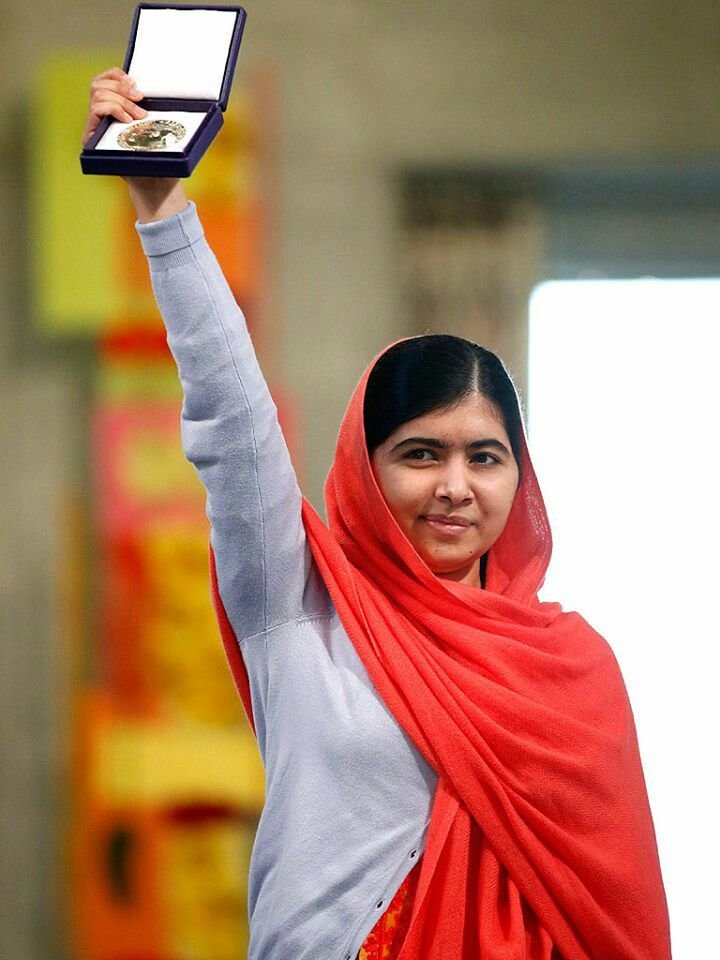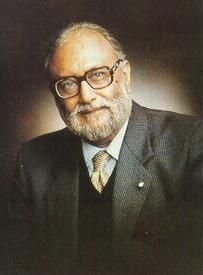
Nobel Prizes and the Asian Toll
Tarek Al-Masri

"Self-respect without respect for others is like a jewel that doesn't stand up to the light of day"
Alfred Nobel
In a unique and unusual event, Alfred Nobel signed his last will and testament at the Swedish-Norwegian Club in Paris on November 27, 1895 AD, and when it was opened and read after his death, which was on December 10, 1896 in Italy, the will caused a lot of controversy, both in Sweden and internationally, as Nobel decided to allocate a large part of his wealth to establish prizes in physics, chemistry, physiology or medicine, literature and peace, as his family strongly opposed the establishment of the prize, and the prize winners that Nobel mentioned in his will refused to perform what he asked. When the executors of his will, engineers Ragnar Sohlmann and Rudolf Liljkist, began to form the Nobel Foundation as an organization to take care of the financial assets that Nobel left for this purpose, and despite the difficulties, obstacles and many interrogations by the authorities in various countries, Nobel's friends and heirs were able to convince the Swedish Parliament to implement it, and in 1900 AD King Oscar II ratified a law establishing the Nobel Prize Foundation, which took five years to award the first Nobel Prize in 1900 AD.
Alfred Nobel was born in Stockholm, Sweden (1833-1896).1896), an era when Sweden was a superpower in Northern Europe, Nobel was fluent in several languages, wrote poetry and drama, was very interested in social and peace issues, and held views that were considered radical during his lifetime, and the greatness of Alfred Nobel lies in his ability to combine the insightful mind of a scientist and inventor with the dynamism of an inspired industrialist, he also proved to be a very skilled businessman, by establishing dynamite factories and laboratories in about 90 different places in more than 20 countries, despite the fact that he lived in Paris for most of his life, he traveled extensively. Although he lived in Paris for most of his life, he was constantly traveling, Victor Hugo once described him as "the richest vagabond in Europe", indicating his frequent travels, as he focused on developing explosives technology in addition to other chemical inventions, including materials such as synthetic rubber, leather, artificial silk, etc. By the time of his death in 1896, he had 355 patents, to conclude his life with his will (Nobel Prizes) which when implemented became an extension and fulfillment of his interests that he pursued throughout his life...
Nobel Foundation
The Nobel Foundation is ultimately responsible for the fulfillment of the intentions contained in Alfred Nobel's will. Its primary mission is to manage Alfred Nobel's wealth in a manner that ensures the long-term financial security of the Nobel Prize and guarantees the independence of the awarding institutions in their work of selecting beneficiaries. The Foundation also promotes the prestige of the Nobel Prize by managing and developing the brands and intangible assets built up during the Nobel Prize's 120-year history, and awards prizes each year by the Royal Swedish Academy of Sciences, the Swedish Academy, the Karolinska Institutet and the Nobel Committee.
Constitution for nomination and selection of winners
Winners are nominated by: Academics, professors, researchers, past winners, and others. Nobel Foundation rules state that shortlists are not published until 50 years after their selection. The Nobel Prizes in Physics, Chemistry, Physiology or Medicine, Literature, and Economics are awarded in Sweden. The Swedish Academy of Sciences selects the winner of the Nobel Prize in Chemistry and Physics, the Nobel Society at Karolinska Institutet selects the winner of the Nobel Prize in Physiology or Medicine, the Swedish Academy determines the winner of the Nobel Prize in Literature, the Swedish Academy of Sciences selects the winner of the Nobel Prize in Chemistry and Physics, and the Nobel Prize in Medicine at Karolinska Institutet The Nobel Prize in Physiology or Medicine, while the Swedish Academy determines the winner of the Nobel Prize in Literature, as the Medical Science Prize Committee at the Karolinska Institute consists of 50 members, and the Swedish Academy consists of 50 members as well, while the Chemistry and Physics Committee consists of 300 members of the Swedish Academy of Sciences, and the Nobel Peace Prize winner in Norway is selected by a five-member committee appointed by the Norwegian Parliament, and the prize is awarded in Oslo.
The rules of the Nobel Foundation also stipulate that the prize should not be presented in a particular field if no one deserves to receive it in that field, and the rules of the Nobel Foundation stipulate that if there is no one worthy of the prize in a certain category, it is withheld and the money is kept for the following year, and one person can win the same prize more than once, but the number of winners does not exceed three times, and the prize can be shared between a maximum of three individuals. In years when the prize was withheld due to external events or lack of nominations, the prize money was returned to the prize's bank deposit, and prize winners are called "laureates" in English, referring to the laurel wreath that was awarded to the winners of competitions in ancient Greece.
Candidate winnings If they win
Due to the prestige that the Nobel Prize winner receives, which lasts for life, the award constitutes a great boost to the career of any researcher, and results in gaining an international reputation, as it is a globally prestigious award, and carries academic and scientific value, the winners of the award are not limited to the prestigious international honor, but they also receive a large material prize, which may be divided if more than one winner of the award is crowned, the winner of each award receives a Nobel certificate, each of which is a unique work of art, a Nobel medal of various designs, and a cash prize of 11 million SEK (990. 000 US dollars).The prizes are awarded at ceremonies held on December 10, the anniversary of Nobel's death.
Facts and anomalies in the history of the award
The Nobel Prize was withheld between 1940 and 1942 due to the outbreak of World War IIFour of the winners were unable to receive the award due to pressure from their governments. Adolf Hitler Three Germans (Richard Kohn (in Chemistry, 1938) Adolf Potnant (in Chemistry, 1939) Gerhard Dumack(in physiology or medicine in 1939) from receiving their awards, and the government of Soviet Union Pressure on )Boris Pasternak (the 1958 literature winner) to urge him to decline the award, and two other winners also declined the award, namely (Jean-Paul Sartre (in literature, 1964) Le Duc Tho(Sartre's rejection of the award came due to his rejection of all forms of honor and official awards in general, while in Lee's case the reason was the conditions she was going through Vietnam At that time, five were in detention at the time the Nobel Prize was awarded: the German peace advocate and journalist Karl von Ossietzky, the Burmese politician (Aung San Suu Kyi), the Chinese human rights activist (Liu Xiaobo), the Belarusian human rights defender (Ales Bialiatski), the Iranian human rights defender (Narges Mohammadi), and the first Nobel Prize was awarded to (Henry Dunant), who co-founded the Red Cross in 1901. The first Nobel Prize was awarded to (Henry Dunant), who co-founded the Red Cross in 1901, and the International Committee of the Red Cross won three peace prizes, and the United Nations High Commissioner for Refugees won the Nobel Peace Prize twice, and the Nobel Prize and the Nobel Prize in Economic Sciences were awarded to women 65 times. Marie Curie was honored twice, in physics and chemistry in 1903 and 1911, respectively, and the Pakistani activist (Malala Yousafzai) won the award in 2014 in the field of children's education when she was 17 years old, and she is still until now the youngest winner, and (John B. Goodenough) from the United States was the oldest winner. He was 97 years old when he won the Nobel Prize in Chemistry in 2019, and 16 families won the Nobel Prize, as a husband and wife won six times, a mother and daughter once, a father and daughter also once, while a father and son won seven times, and only once did two brothers receive the award.
International Awards
The six Nobel Prizes were awarded 621 times to 1000 individuals and organizations, between 1901 and 2023, and with some receiving the Nobel Prize more than once, this means a total of 965 individuals and 27 organizations. The Nobel Peace Prize was awarded 104 times to 141 Nobel laureates, 111 individuals and 30 organizations. The Nobel Prize in Physics was awarded 117 times to 225 Nobel laureates, the Nobel Prize in Chemistry was awarded 115 times to 194 laureates, the Nobel Prize in Physiology or Medicine was awarded 114 times to 227 laureates, Literature was awarded 116 times to 120 laureates, and Economics was awarded 55 times to 93 laureates

In a census of the top ten countries that received the largest number of Nobel Prizes, the clear superiority of the United States, the United Kingdom and Germany stands out, as a result of their long contributions in the fields of scientific research, literature and peace efforts. with 400 awards, followed by the United Kingdom with 137 awards, Germany with 111 awards, France with 71 awards, Sweden with 32 awards, Japan with 29 awards, Canada with 28 awards, Switzerland with 27 awards, Austria with 22 awards, and the Netherlands with 22 awards.
Asia's Nobel Prize Winners
All six award categories were won by Asians: Physics, chemistry, physiology or medicine, literature, peace, and economics, with a number of eighty-one Asian winners, including dual nationals and non-Russian winners, and (Rabindranath Tagore) from India was the first Asian to receive the Nobel Prize in Literature in 1913, and the year 2014 AD was the highest number of Nobel Prizes awarded to Asians, when five Asians won the award. of Nobel Prizes awarded to Asians, when five Asians won the award, and Narges Mohammadi is the last recipient of the award in 2023 AD, and she is the second Iranian on the Nobel lists who was awarded the award while in prison, and Japan is considered the most Asian country with twenty-nine awards.
The number of Asian prizes in physics amounted to 21 winners, with the Japanese forming the majority with 12 winners, physics prizes 19 winners, with the Japanese also forming the largest number of winners with 8 winners, seven Asians received the Medicine and Physiology Prize, with the Japanese forming the largest number of them, and the Japanese won 3 out of 8 prizes in literature, the Nobel Peace Prize amounted to 22 winners, and in economics only 4 prizes were collected.
In 1979, Pakistani scientist Muhammad Abdus Salam won the Nobel Prize in Physics, the first Pakistani and the first Muslim to win the Nobel Prize for Science. He even wore a white turban in Stockholm during the ceremony to receive the award from the King of Sweden, and quoted Quranic verses in his acceptance speech, but instead of this victory representing a historic moment for his country, his achievements were forgotten from the moment Pakistani Prime Minister Zulfiqarli Bhutto issued a new law against Ahmadis in 1974, stripping him of his Islamic identity.

Criticism of the Nobel Prize
The Nobel Prize is considered the second most criticized award among the international prizes, as there was criticism that reached the point of ridicule over former US President Barack Obama winning the Nobel Peace Prize in 2009 for receiving the award, especially since he had only been in office a few days before the nomination deadline, and the Swedish Academy was criticized in a letter written by 42 Swedish writers and writers expressing their dissatisfaction with not nominating the Russian novelist Leo Tolstoy for the Nobel Prize in Literature for five years, and yet Tolstoy did not win in his years of nomination, and it was said that he did not win because of the Academy's reservations about his political and religious positions, in addition to the strained relations between Russia and Sweden at the time. The Nobel Prize archive also revealed in 1962 that the author (John Steinbeck) was a "compromise choice" from a shortlist, and the declassified documents showed that he was chosen as the best of the bad choices, and the writer himself admitted that he did not deserve it, when asked on the day the award was announced about his opinion, and among the criticisms was the unbalanced ratio of males to females, as the male representation is very large compared to the number of females, but the Nobel Museum confirmed that while there are no records indicating the deliberate disregard of women's works, there is a story In 1903, Marie Curie's husband and her partner in research on radioactive materials refused to receive the Nobel Prize in protest against his wife's failure to nominate his wife for the award, and the award board decided to accept her in a late nomination and she became the first woman to win the Nobel Prize, and some researchers have criticized the current criteria for awarding the Nobel Prize, as each award cannot be shared among more than three people, and the winners cannot be named after death, the nomination lists remain secret for 50 years, and there are controversial nominations due to the loose criteria for nomination that led to the inclusion of the list of candidates, choices
Conclusion
The Nobel Prize was a reflection of the interests of Nobel's exceptional personality, which was represented by his admiration for world literature, his philosophical interests and his calls for the abolition or reduction of standing armies and the promotion of peace conferences. His misfortune in love and his many diseases were one of the factors that refined his intellect and produced his noble will, a personality that aroused the admiration of poets, writers, industrialists and businessmen, despite being accused of paving the way for the destruction of humanity, by inventing explosive materials that humanity misused, similar to the misuse of science by humans, but everyone praises him for his noble motives in presenting something beautiful against the best work that was done for the brotherhood of nations, or work that benefited humanity as a whole, in the most important fields that enriched humanity and contributed to the development and progress of humanity and the prosperity of the whole world. However, everyone praises the nobility of Nobel's motives in presenting something beautiful against the best work for the brotherhood of nations, or a work that benefited humanity as a whole, in the most important fields that enrich humanity and contribute to the development and progress of humanity and the prosperity of the entire world, but the criticisms that affected it and the lack of development of its constitutions left it under accusations and suspicion Especially since they include only the living contributors of our era, in which the current Westerners have innovated and made contributions that are considered an extension of Eastern ideas and inventions of origin and identity, and this explains the lack of Asian awards obtained, compared to the European and American West.
Research and Studies Department at the Asia-Middle East Forum








